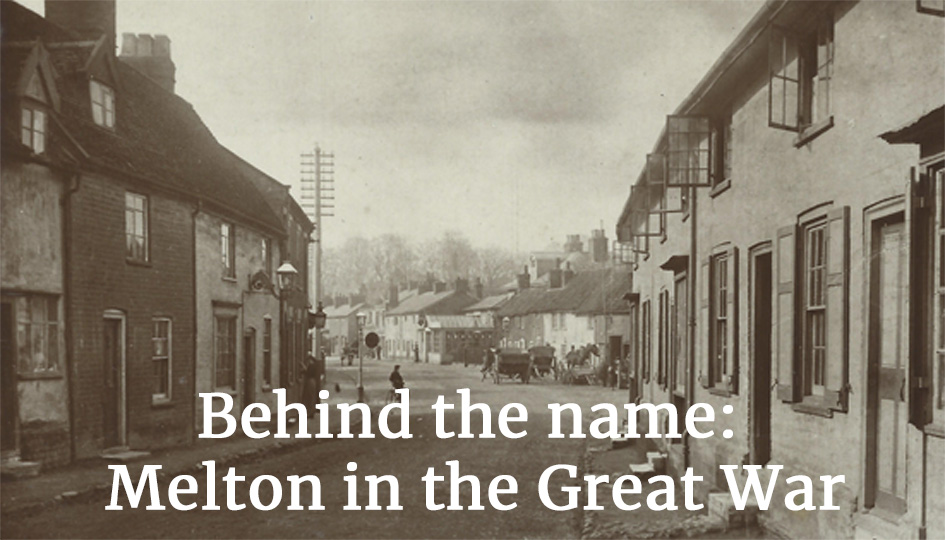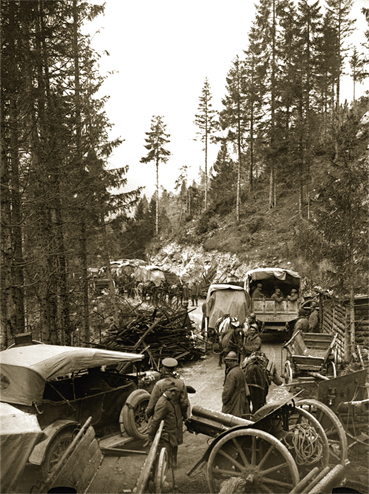Alexander, or Alex as he was known, was the eldest son of Samuel and Emily, born on 2nd August 1879. In 1901, the Cranmer family was living at 3 Prospect Place, Melton, but at the time of the census, Alex had joined the army and was serving with the 1st Battalion Suffolk Regiment in South Africa, fighting in the Boer War.
Alex returned to Woodbridge on 25th April 1901. Lambert’s Almanac describes his return:
“Corporal Upson and Private Cranmer, two Woodbridge Volunteers, arrived home from South Africa, and had an enthusiastic reception.”
Alex had enlisted in the 1st Suffolk Volunteer Brigade on 23rd March 1897. On 17th January 1900, he volunteered for overseas service in South Africa, embarking on 11th February, to take part in the Boer War. On his attestation papers his occupation was listed as assistant tailor. It was not until his return from South Africa that he joined the family gunsmith company. Alex continued to serve with the 1st Suffolk Volunteer Brigade until 1st April 1908, when the Haldane reforms were introduced to replace local militia with a territorial force.
On 10th April 1908, Alex enlisted in the 4th (Territorial) Battalion Suffolk Regiment, continuing his volunteer service in the army. When war was declared on 4th August 1914, Alex’s service record shows that he became an embodied soldier in the 4th Battalion Suffolk Regiment the next day. When the regiment was sent to France in November 1914, Alex chose to remain on Home Service. The following year, he served with the 64th Provisional Battalion, made up of men who were either unfit, too old or had not signed up to go abroad. The battalion was detailed to perform coastal defence duties in Cromer on the North Norfolk coast.
In January 1916, Alex volunteered to transfer into the regular Army with the Army Ordnance Corps (AOC) due to his experience in the gun trade. On the 24th January 1916, Alex took and passed a trade test in Colchester and was accepted onto the programme to become an Armourer. He transferred to the AOC on 17th February and was immediately promoted to Sergeant.
Although a member of the Army Ordnance Corps, Armourer Sergeants were attached to infantry battalions and came under their command. He would be responsible for the maintenance of the rifles, pistols, other small arms and bicycles of up to a thousand men. All Armourer Sergeants had to be trained gunsmiths who had passed a trade examination proving their competence.
Alex completed the training and was sent to France, leaving Southampton on the 5th June 1916 and arriving the next day in Le Havre. Three days later, he was posted to join the 1/4th Royal Berkshire Regiment, with whom he would stay for the rest of the war. His battalion was to take part in some of the most significant battles of the war, fighting at the Battles of The Somme and the following year at the Third Battle of Ypres or “Passchendaele”. In late November 1917, the battalion was posted to Italy, spending the winter in the Lugano area. They remained in Italy for the rest of the war. In March 1918, Alex was on the front line at Montello, followed by a move to the Asiago Sector. Here, the battalion took part in the fighting on the Asiago Plateau and later, towards the end of October 1918, against the Austrians in the Battle of Vittoria Veneto.
Alex was discharged from the services on the 15th July 1919 and returned to the family home at 7 Prospect Place on Melton Hill. He continued to run the family business in Melton and was listed in the 1939 Register as a gun maker living at the same address. Alex died on 30th November 1959, never having married.
For his military service, Alexander Cranmer received the British War and Victory Medals and the Territorial Efficiency Medal.

